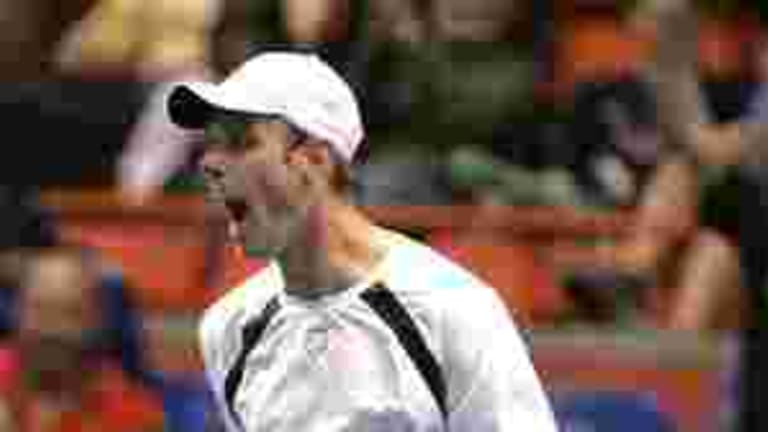Had there ever been a Sam Querrey Moment before Friday night? The No. 1 American had won just one five-set match in his career, and that had come against Xavier Malisse, a less-than-Borgian figure, three years ago at Wimbledon. Despite his long experience as a member of the U.S. Davis Cup team, Querrey had just a couple of live tie victories to his credit. And while his match against Serbia’s Viktor Troicki at the Taco Bell Arena in Boise, Idaho, wasn’t a clinching rubber, it was a must-win all the way. Querrey’s teammate John Isner had already lost to world No. 1 Novak Djokovic; another defeat, and an 0-2 hole, would have meant almost certain doom for the States in this quarterfinal. This was, like it or not, a Sam Querrey Moment. Perhaps for the first time in his career, he was faced with a match that he absolutely had to win.
As the fifth set got underway, it didn't appear that Querrey was up to the task. He had, it was true, dominated the fourth set 6-1 behind an almost flawless serving performance—Querrey missed one first serve the entire set. But as the fifth began, he suddenly looked sluggish and disbelieving, as if he had just remembered that he was 1-5 for his career in fifth sets. Troicki, who loves to play, if not necessarily win, five-set matches, earned two break points at 1-2, and he seemed to have much of what constituted the crowd behind him—there were a lot of empty seats in this out-of-the-way location, and many of the fans who did make it backed the Serbs. This was a perfect chance for Querrey to fold with some degree of honor. Except that, instead, he won the next point by leaping back for a stunningly athletic overhead. Three points later, Querrey held.
Fifteen minutes after that, Querrey had earned his own pair of break points on Troicki’s serve at 4-4. All afternoon, the American had run around and tried to nail his forehand return on the Serb’s middle-of-the-box second serves. All afternoon he had just missed. This time Querrey, rather than go for the corner, drilled the ball with some margin down the middle. Troicki wristed a forehand back; the ball reached the loose tape, the same tape that had burned him twice before on Querrey netcord winners. Troicki's shot hit the strap...and bounced back onto his side. Querrey had broken. The 25-year-old would serve out the match for a 7-6 (5), 3-6, 4-6, 6-1, 6-4 win, the biggest of his career. The U.S. was still in the tie.
For long stretches on Friday it had looked as if the U.S. was overmatched athletically. Djokovic had out-run and out-defended and out-flexed and out-returned and ultimately out-played Isner. Troicki did the same to Querrey in the second and third sets. It looked like one more proof, as if any more were needed, that defense and returns and versatility and athleticism were too much these days for tall players and their thudding serves and footsteps. Querrey and Troicki struggled with nerves and bad history—Querrey was the winner of just one five-setter; Troicki was 4-7 for the year coming in. At times it seemed that the moment, and the crowd, would hold Querrey back. But with his final blazing forehand return up the middle, he finally broke out of his losing pattern. In his last service game, in which he held at love, Querrey looked like a free who was man at last.
He should savor it tomorrow. On Sunday, the American is scheduled to play the final rubber against Novak Djokovic. Querrey will need more than a Moment to win that one.
